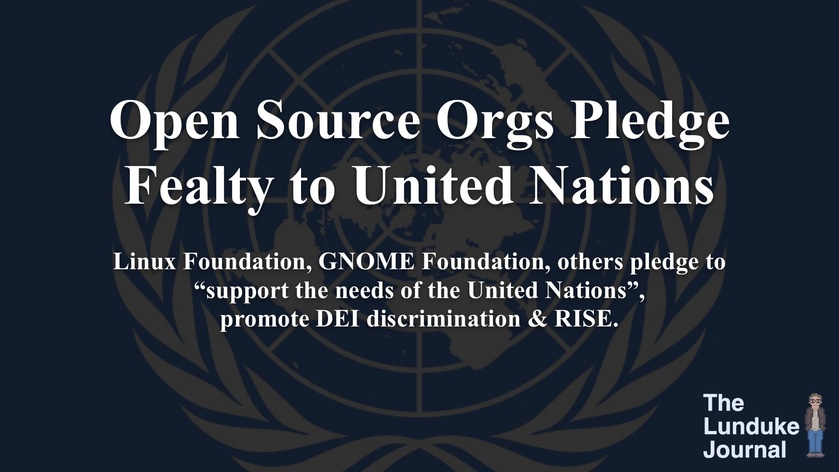“Who controls Open Source?” is a fascinating topic.
Some of the largest “Open Source” foundations are primarily funded by corporations which, by most estimations, have not historically been fans of “Open Source” or “Free Software”.
Case in point, The Linux Foundation — which brings in roughly a Third of a Billion dollars per year — is heavily funded by corporate sponsors such as Microsoft, Hitachi, Meta, & Tencent. All of which derive most of their revenue from proprietary systems. Likewise Mozilla (bringing in over $600 Million annually) is almost entirely funded by Google.
As the saying goes, “He who controls the purse strings, controls how the money is spent.”
And, of course, we must consider the political control (and influence) over Open Source. Many large Open Source Foundations and Organizations have deep, often financial, ties to political activism organizations — both Mozilla and Wikimedia being some of the more well known examples.
Well.
Buckle up, Buttercup. Because all of this is about to get a whole lot worse.
Enter the United Nations
Back in March, the United Nations announced that 16 organizations had signed on to the “United Nations Open Source Principles”.
The “UN Open Source Principles” is a set of 8 core principles which Open Source organizations are vowing to adhere to. 5 of those 8 principles being fairly obvious and, considering the topic, not at all surprising.
Expected things like “Make Open Source the standard approach” and “Encourage active participation in Open Source”. Oh, and “Make security a priority”.
Ok. Sure. Fine.
I can understand why an Open Source organization might choose to pledge to follow such ideals. In theory, they were possibly doing those things anyway.
But three of the “UN Open Source Principles” raise significant red flags.
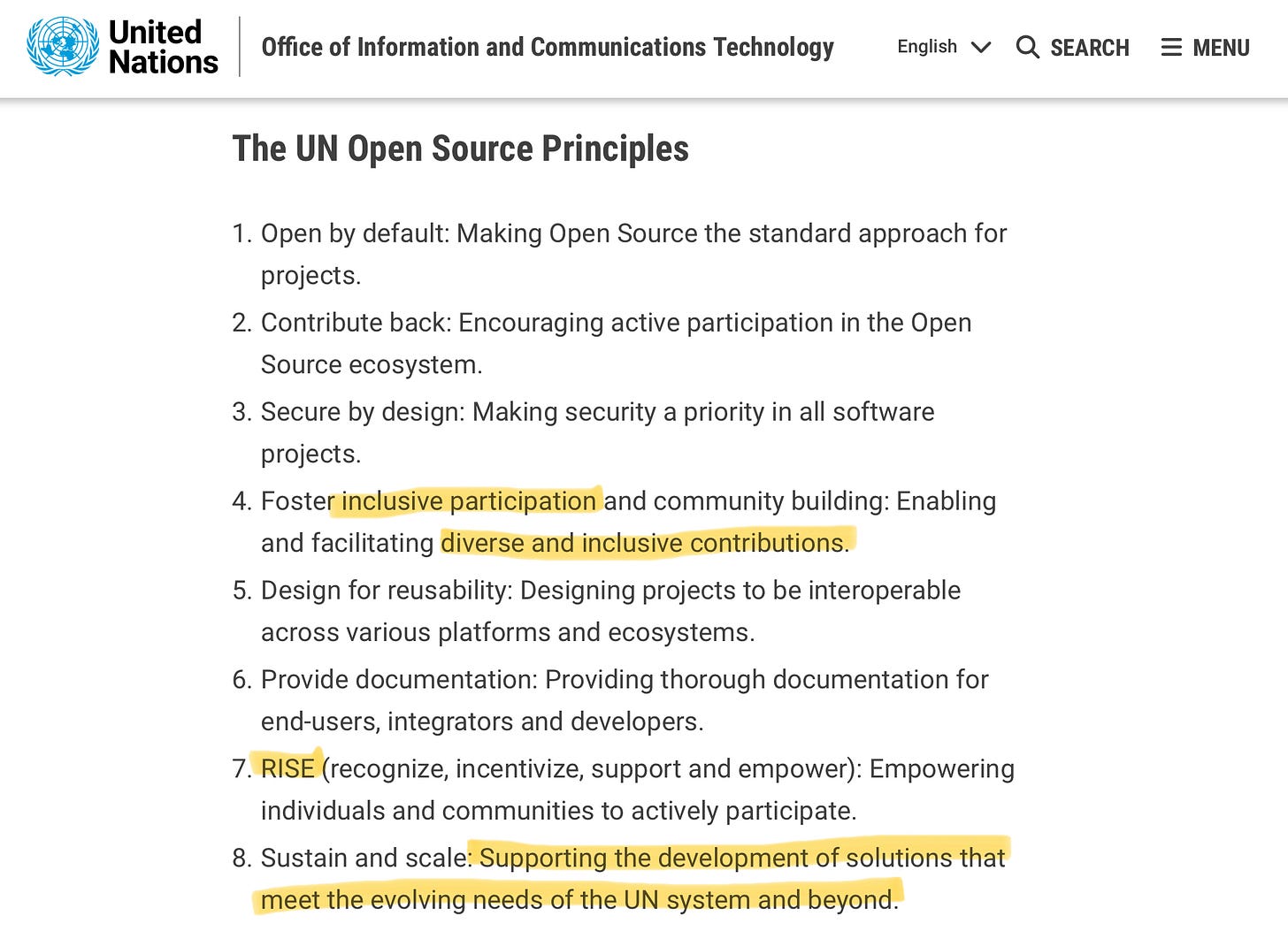
The Red Flag UN Open Source Principles
Let’s go over those three, red flag raising items. Which every signatory has agreed to.
“4. Foster inclusive participation and community building: Enabling and facilitating diverse and inclusive contributions.”
Inclusive. Diverse.
Over the last several years these have become code words for “discriminate against people we don’t like”. We’ve seen this time and time again — with companies like Red Hat and IBM building entire corporate policies around what skin color they want in their employees.
All hidden behind words like “Inclusive” and “Diverse”.
And the United Nations wants Open Source organizations to commit to that form of systemic discrimination.
Already, this is not great. But it gets far, far worse.
“7. RISE (recognize, incentivize, support and empower): Empowering individuals and communities to actively participate.”
If you don’t know what RISE is, that sentence reads like a bunch of corporate buzz word mumbo jumbo. But it has a very real, very sinister meaning.
What is “RISE”, you ask? It is a codified framework for encouraging exactly the type of discrimination we just talked about — it has become an increasingly widely used tactic among DEI advocates.
RISE is an acronym:
Recognize the contributions of “underrepresented or marginalized” groups. Highlight the achievements of “diverse” employees over “non diverse” employees”.
Incentivize “underrepresented” groups (with internships, promotions, scholarships, bonuses, etc.) to encourage “diversity”. (read: discrimination)
Support “underrepresented or marginalized” groups with tailored resources to ensure “equitable” outcomes. (read: no meritocracy)
Empower “diverse” individuals with leadership roles in order to promote DEI.
Sometimes discussion around “RISE” specifically includes language regarding “DEI” and “Diversity”. Other times that exact language is left out — but the core goals and motives remain consistently DEI focused.
It is, in essence, a corporate-speak, checklist for encouraging discrimination.
Which brings us to the last “UN Open Source Principle”. The one which, quite possibly, raises the largest red flag of all…
“8. Sustain and scale: Supporting the development of solutions that meet the evolving needs of the UN system and beyond.”
Did you catch that?
Open Source organizations, which sign on to this compact, are pledging to “support the development of solutions that meet the needs of the United Nations”.
Or, put another way, those organizations are pledging to do the bidding of the UN. Whatever that might be.
The UN is asking these Open Source organizations to pledge fealty to them.
The Open Source Orgs Pledging Fealty
Which Open Source organizations are we talking about? Quite a few of the big names — names which will be very familiar to Lunduke Journal readers — including:
The Linux Foundation
The GNOME Foundation
Eclipse Foundation
The Document Foundation (LibreOffice)
And so many others. Heck, even Nextcloud and Matrix have signed on.
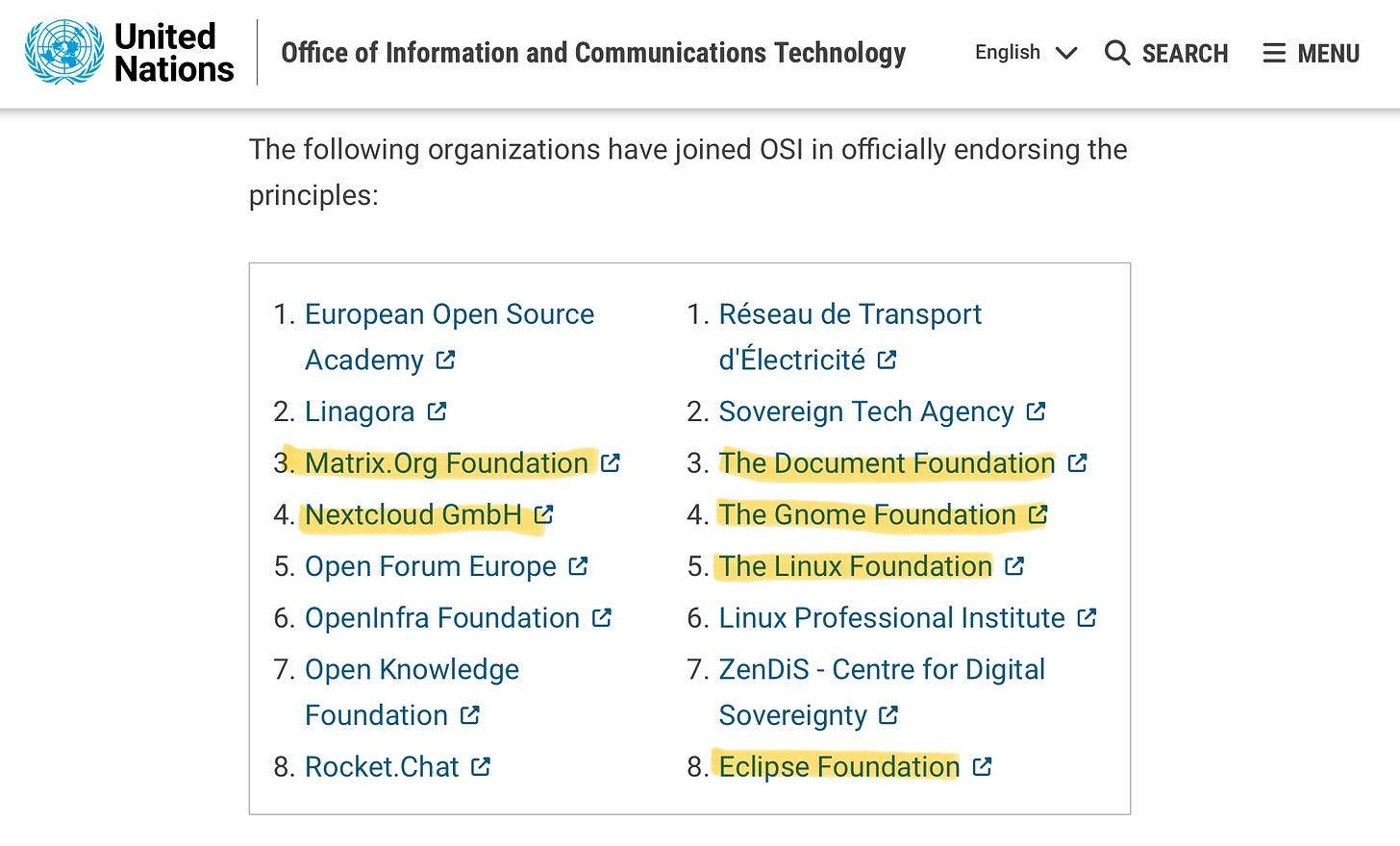
Many of these organizations (and others) recently met, in person, at the United Nations in New York to discuss — among other things — this formal agreement. This… compact.
The UN Global Digital Compact
In June of this year, the United Nations hosted “UN Open Source Week” — and invited a who’s who of organizations which control Open Source in one form or another (along with a number of smaller organizations which are politically aligned with the UN).
This gathering was officially named “an Open Community for the Global Digital Compact”.
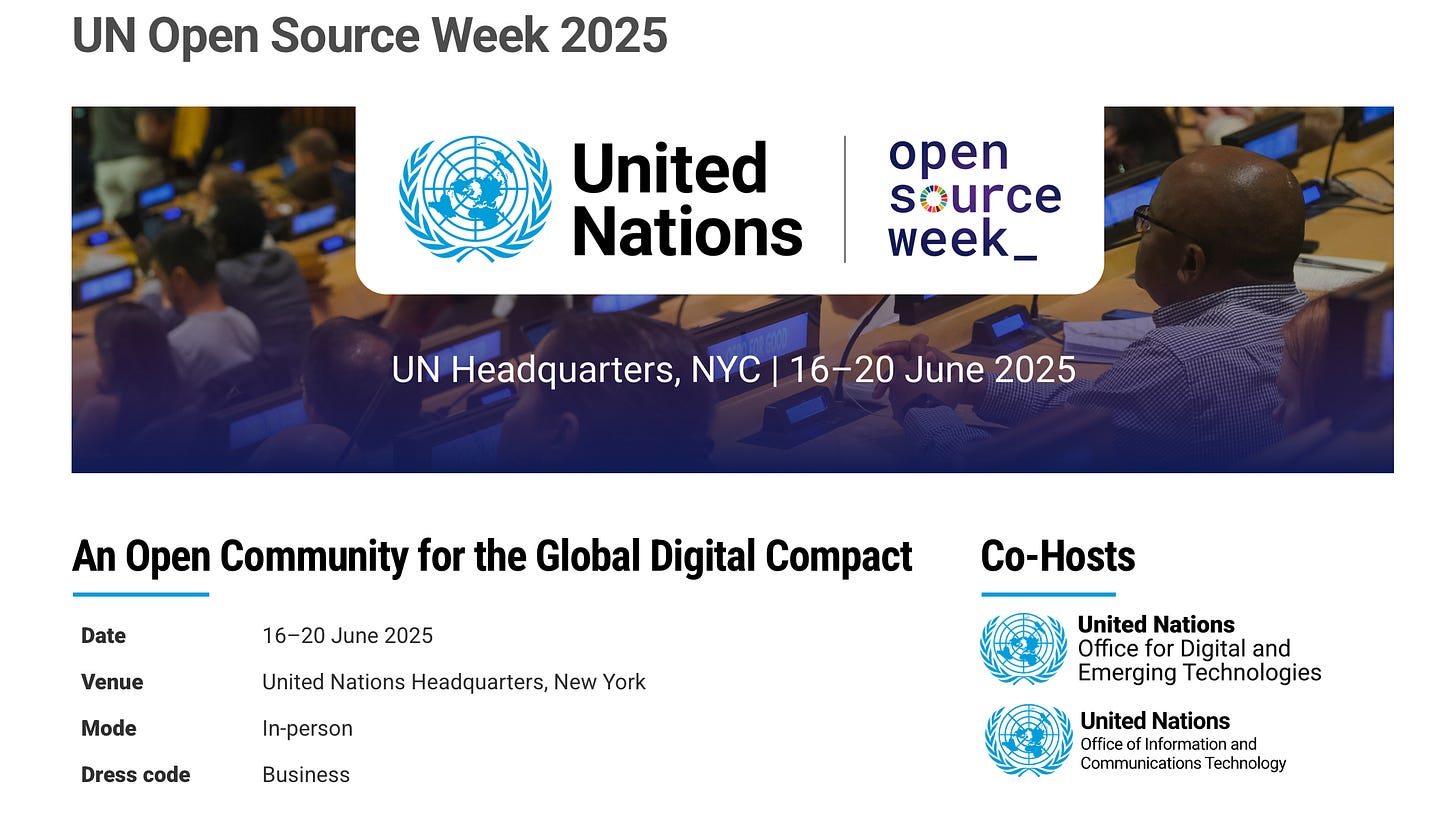
Who did the United Nations make a point of inviting to speak to those in attendance?
Let’s go down the list.
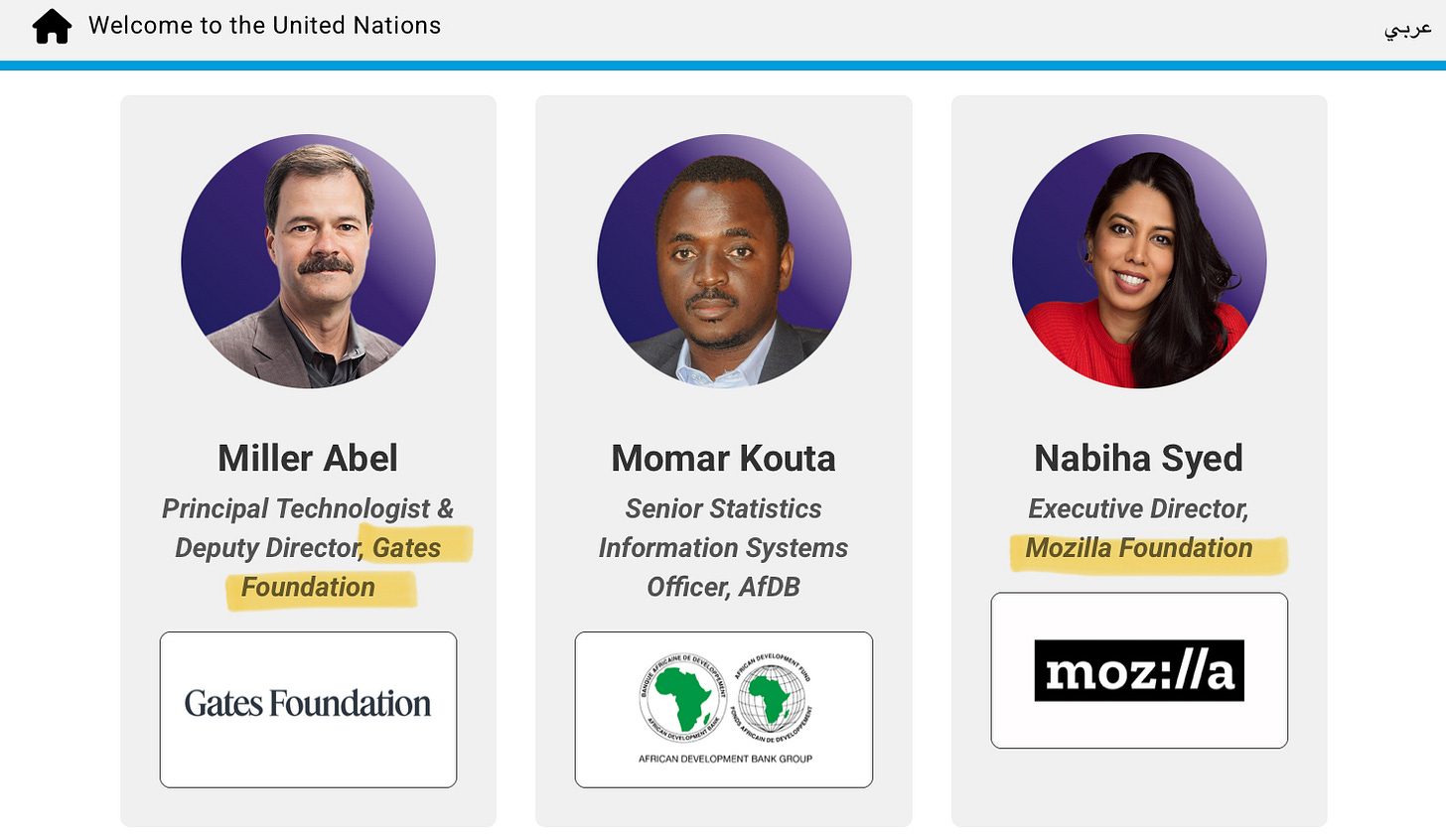
The Gates Foundation and Mozilla.
Of course.
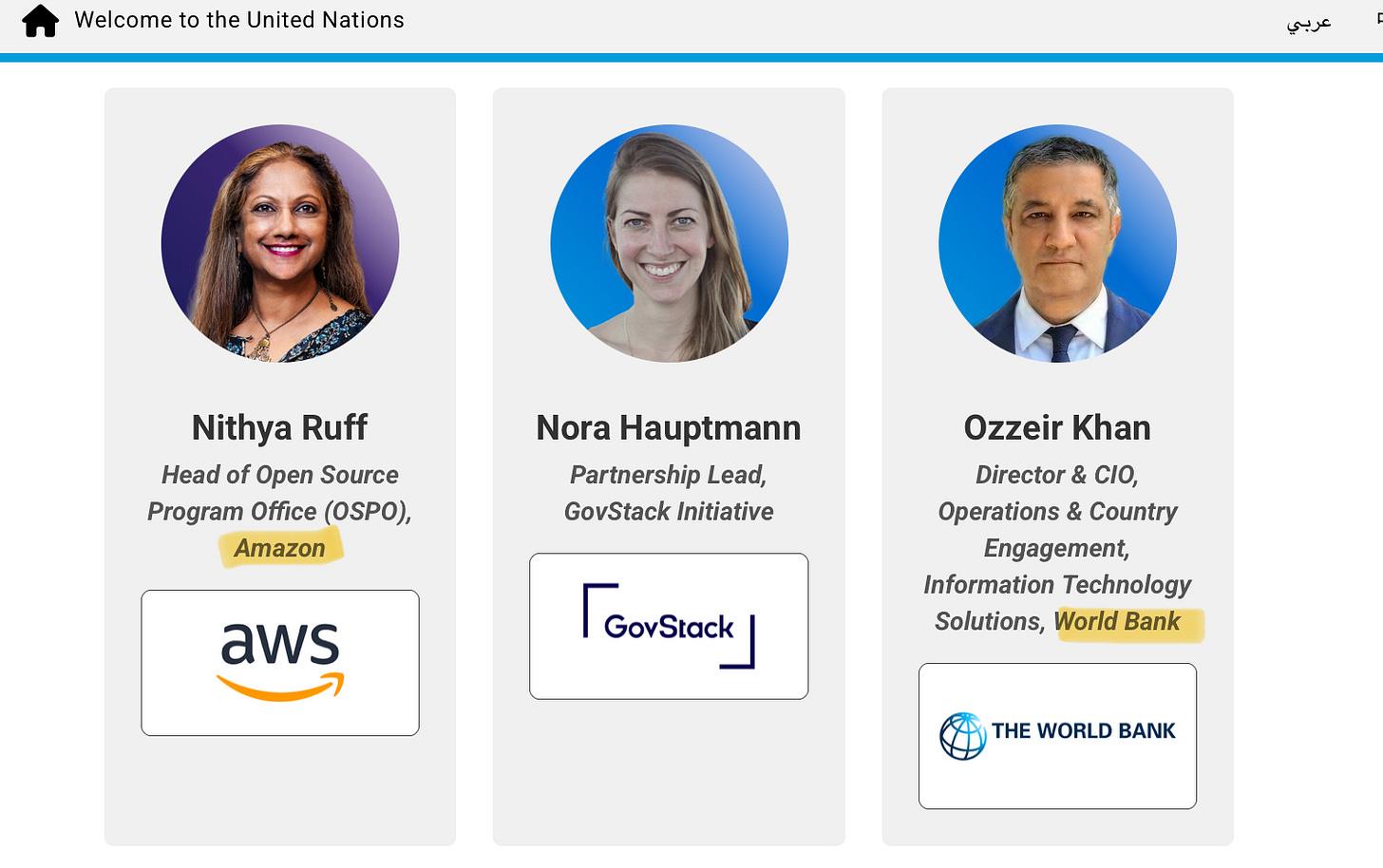
Amazon and, I kid you not, The World Bank.
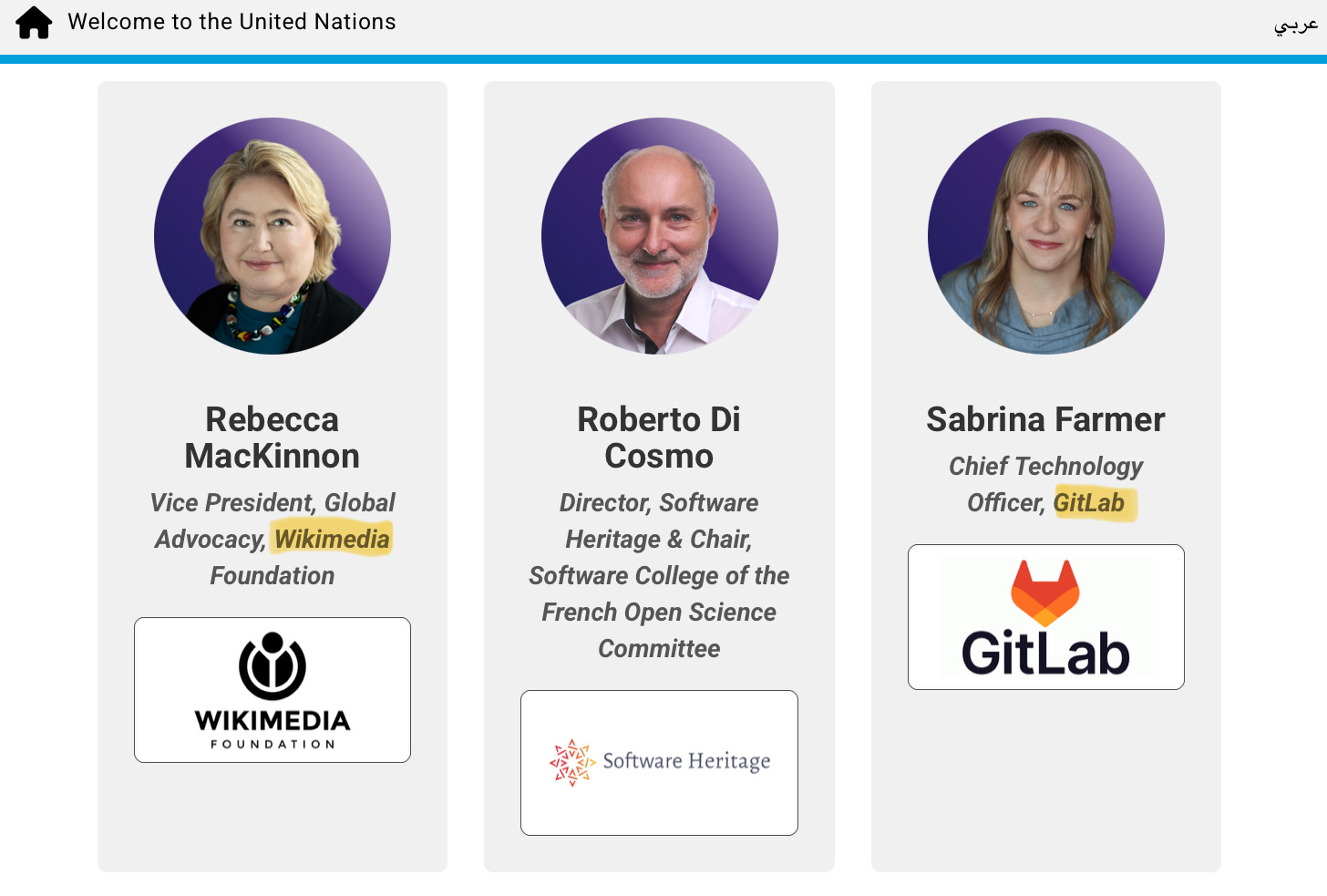
GitLab and Wikimedia Foundation.
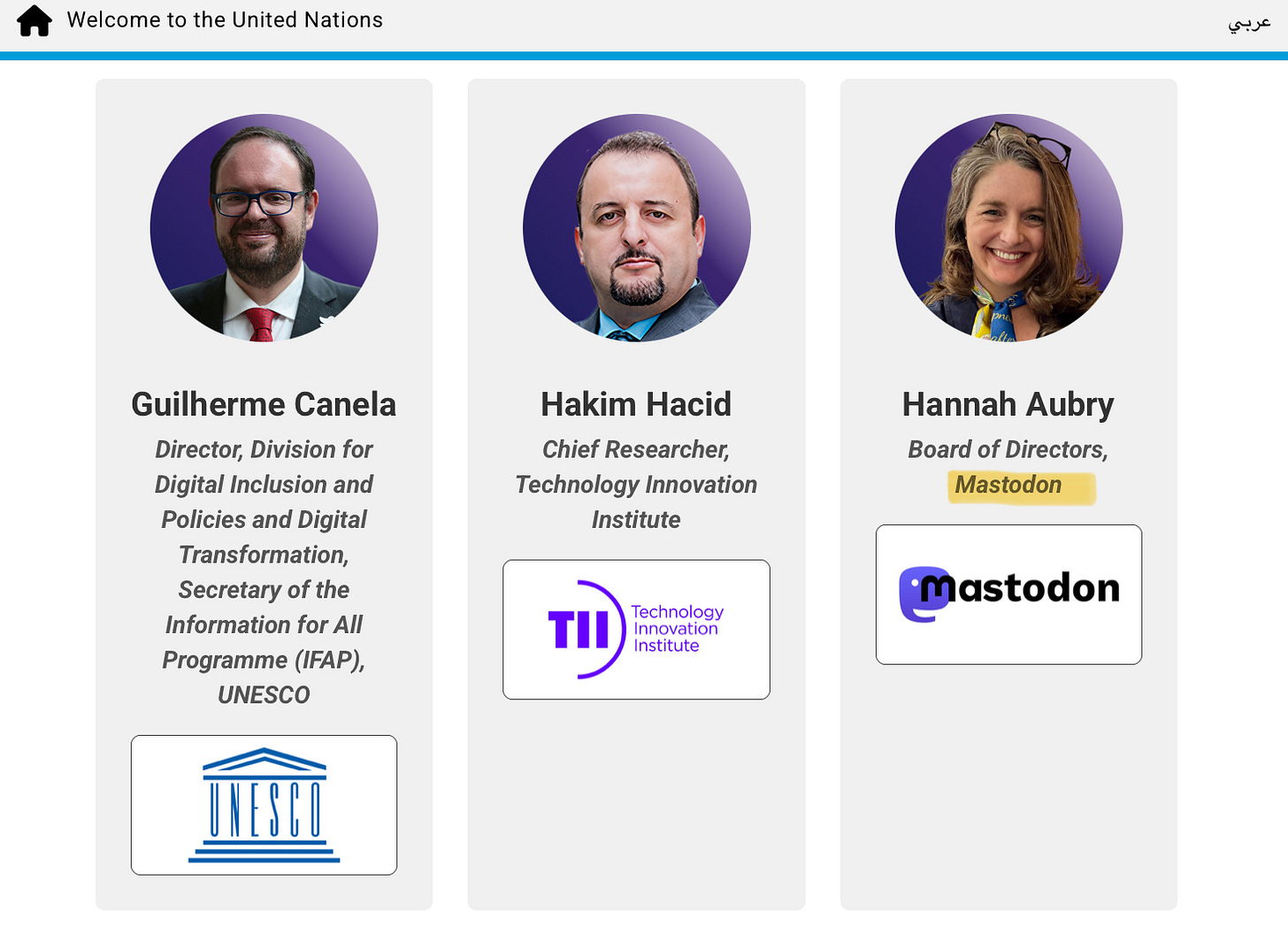
I found the inclusion of Mastodon a fascinating one. While Mastodon is small (in most ways — even considering the size of their social media network), they align strongly to the political goals and views of the United Nations (promote Leftist Extremism, censor political opponents).
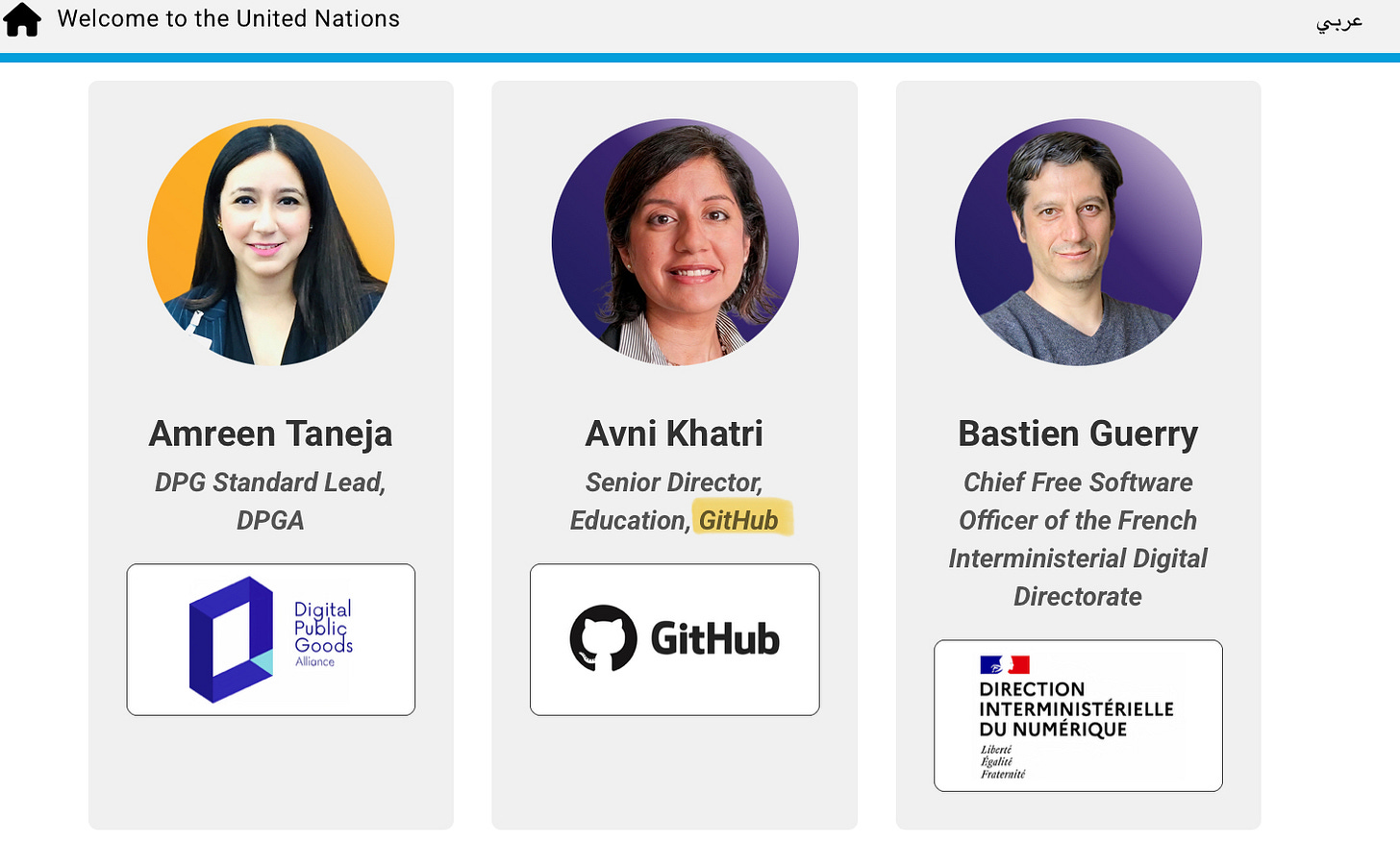
And, of course, GitHub. Aka… Microsoft.
In addition, representatives from most of the signatories of the “United Nations Open Source Principles” agreement were in attendance (including the GNOME Foundation).
Some of the presentations were about things like “Ethical” software, interoperability with United Nations systems, “Public infrastructure”, digital “cooperation” of governments, and (of course) “inclusion”.
Many presentations — by many organizations — which already raise significant concerns.
But, and this is important, what did they talk about behind closed doors? What was discussed out of the public eye at the (many) meetings and events where attendees were wined and dined?
That remains unknown.
The Lunduke Journal has asked. The UN isn’t talking. Neither are the attendees.
The Three Masters of Open Source
But we now know, with a high level of certainty, that many of the significant Open Source organizations and Foundations now serve three masters:
The Corporations
The Political Activists
The United Nations
I don’t know about you, but I sure wouldn’t want to have those three masters.
As always, The Lunduke Journal encourages representatives and leadership from any organization involved with this story to reach out — for any reason. Corrections, clarifications, or additional information. Considering the professed commitment to “openness” of every organization mentioned in this story, there should be no reason to continue refusing to speak to journalists regarding it.
Likewise, if you would like to become a whistleblower, there are multiple ways to get ahold of The Lunduke Journal.
Sunlight is the best disinfectant.
And this story needs a heck of a lot of sunlight.
